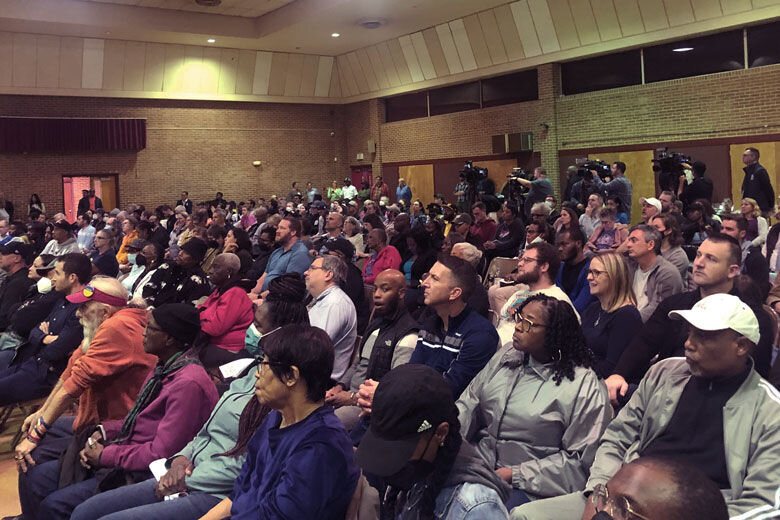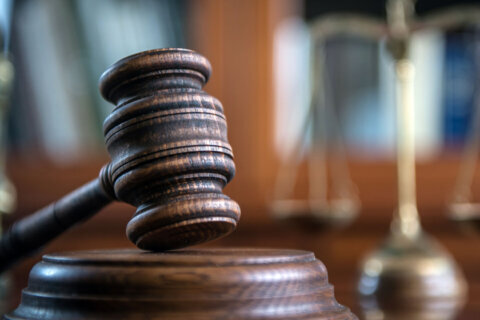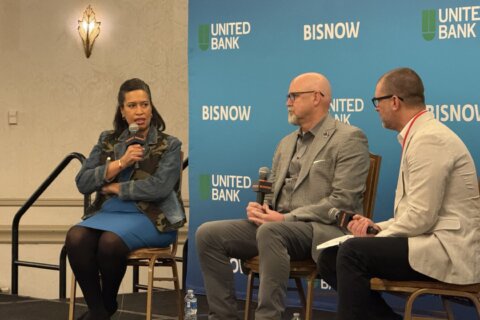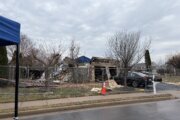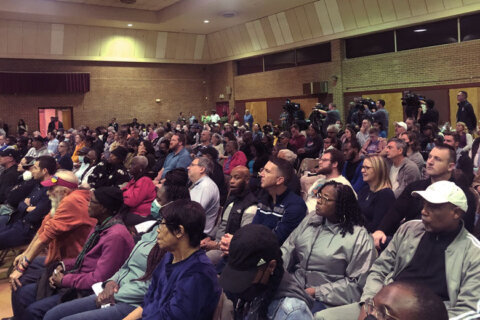
The future of the crumbling RFK Stadium and its 174-acre site were the subject of a community meeting Wednesday night with some of the venue’s neighbors in Northeast D.C.
All seats were filled and a line of people looking to participate in the meeting stretched out the door of the auditorium at St. Benedict the Moor Catholic Church in the Kingman Park neighborhood, in the shadow of RFK Stadium.
“I would like to see this area developed. We can make it a whole new city here, that’s how big this area is. We could call it ‘Justice City,'” said John Capozzi, a resident of the Hillcrest neighborhood. “We could make this an ideal place for people to live and work, and that’s the vision that I have for this, as opposed to a stadium that’s used a dozen times a year, which costs us a billion dollars or more.”
At the community meeting sponsored by the Friends of Kingman Park Civic Association, a survey showed that 67% of those questioned said they did not want a new stadium to replace RFK.
Organizers said 2,000 people were surveyed from eight neighborhoods near the stadium site. Many of those surveyed said they want parks and a sports recreation complex for all ages to be built on the old site.
“I’m not really in favor of the stadium there. I know it’s a historical site, but D.C. is very small, smaller than … a major city like New York or even Miami,” said Malcolm Randall, a resident of Riverside Terrace.
He added that he bought his home in 2018 with the understanding that the District would transform the stadium site into a place of recreational activity, retail and mixed-use housing.
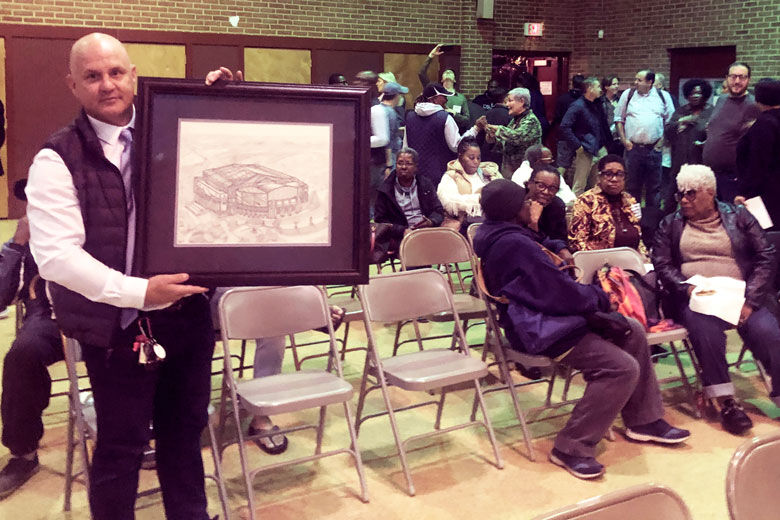
Some activities have been conducted in some of RFK’s sprawling parking lots, including the addition of Maloof Skate Park, a 15,000-square-foot area coveted by skateboarders in the city.
“It’s given me and the other skateboarders in the area a place where we can come together, where we can exchange perspectives and just support each other. And it’s really the only such place that serves Northeast D.C.,” said skateboard instructor Jeremy Stettin, who lives in the Kingman Park neighborhood.
“I want some kind of pledge given that the skate park will be preserved or, worst case scenario, if it is to be demolished, that another skate park can be constructed on some other part of the RFK campus,” said Stettin.
Mayor Muriel Bowser addressed the community meeting and took questions, promising that neighborhood voices would be heard and be part of the process in determining the future of the RFK site.
Bowser told residents the first step is for the District to gain control of the federal parcel of land.
“We know that getting control of that property would allow the District to do what we’ve been able to do on other underutilized federal parcels — to re-imagine it and to create the things that we need, including more jobs and opportunity in housing and park space,” Bowser said.
Bowser told the meeting many of the District’s goals can be met on the sprawling site.
“If you ask me what my vision is, I’ve said long and frequently that it is not to have a stadium surrounded by asphalt, but it is to have a mix of uses that serve the District of Columbia,” Bowser said.
She reminded her audience that the city council approved spending $60 million on an indoor sports complex at the RFK site that would be programmed and managed by the D.C. Department of Parks and Recreation.
“Our goal is to build this indoor sports complex for our youth that would become a premier destination for youth sports,” Bowser said.

